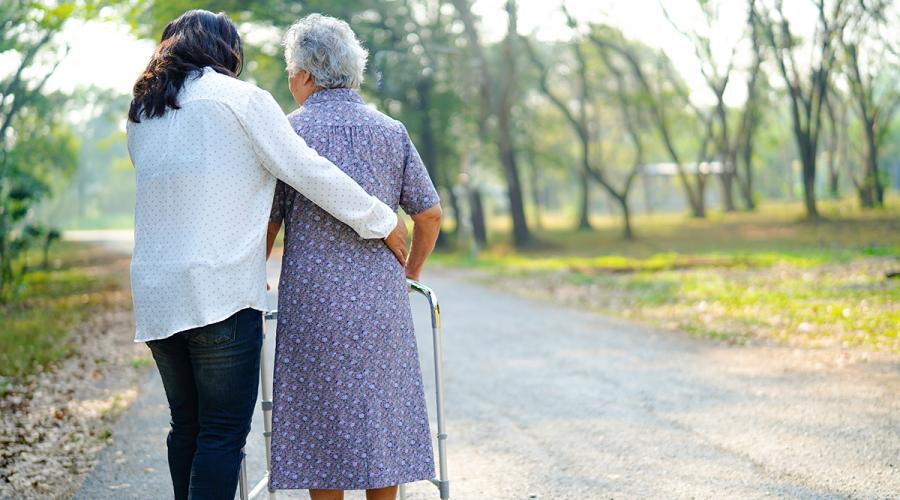
Now more than ever: be fair to direct care
The pandemic has created an elevated risk for many types of essential workers. The challenges faced by hospital and nursing home personnel, paramedics and firefighters is well understood. But there is a large group of workers who in many cases have not received the attention, resources or guidance necessary to keep themselves and those they work with safe – the “direct care” or “direct support” workforce providing critical home and community-based services to people with disabilities.
What is the ‘Direct Support’ workforce?
The Direct Support workforce encompasses a variety of job titles and essentials functions, organized under the broader category of Healthcare Support Occupations. These workers provide home and community support to people with disabilities for a variety of life skills, personal care and medication management. They assist with goals related to community inclusion and independence which range from health and safety, shopping, accessing public transportation, to obtaining competitive integrated employment. Two of the ten largest occupations in New York State encompass workers who hold these jobs: categorized as either personal care aides or home health aides by the New York State Labor Department. They are predominately low wage occupations, topping out at around 30k a year for the most experienced workers.
A Crisis Already Existed
Before the pandemic, this workforce was largely deemed to be in a state of crisis in New York and nationwide. Despite the low pay, Direct Support Professionals (DSPs) often require extensive training and expertise, and their work is subject to stringent regulatory oversight from state and federal authorities. The combination of low pay, and a high degree of responsibility and accountability has led to a decline in qualified candidates for direct support jobs, as well as an extremely high rate of turnover. Without the ability to find and keep people in these important roles, people with disabilities face not only a loss of essential services, but are also faced with risks to safety and the potential to be institutionalized in a nursing home or other more restrictive setting.
COVID-19 is Hurting an Already Stressed System
In addition to ongoing staffing concerns, agencies employing DSPs are facing a barrage of new challenges. The inability to provide some face to face services has resulted in declining revenues, while expenses related to hiring new workers and overtime costs to provide sufficient staffing levels have increased. Agencies have struggled to obtain the necessary personal protective equipment (PPE), leaving workers and people with disabilities vulnerable to infection. In many instances, DSPs are employed directly by people with disabilities who hire and supervise their own staff. It has been an even greater challenge to protect workers and service recipients in these “consumer-directed” settings, often leading to a debate about who the employer of record might be; the consumer of services, or the “fiscal intermediaries” who assist with Medicaid reimbursement for services rendered, and payroll administration.
There was particular confusion related to the executive order requiring employers to provide face coverings, in situations where the employer of record is a person with a disability receiving the services.
What is Needed Now?
Governor Cuomo’s Guidance on Essential Services included DSPs in human service agencies specifically as essential personnel, but more support is needed to ensure that this critical workforce has the resources it needs to safely continue their work. New York Senate Bill 8361, referred to the Committee on Health, would allow agencies to seek reimbursement for PPE provided to DSPs and those receiving support and care within those programs, and to create a 90-day emergency stockpile. If passed this would make it easier for human service agencies – already in financial peril – to fund procurement of PPE, without tapping into revenues intended for programming and support. There are also pending legislative efforts to enact salary and fringe increases for DSPs, currently in the Committee on Mental Health.
At the federal level, multiple bills have been introduced in the House and the Senate which include provisions to better understand and improve direct care/direct support occupations. There are versions of the ‘Recognizing the Role of Direct Support Professionals Act’ introduced in both the House and the Senate, which would modify the Standard Occupational Classification system to include a separate code for direct support professionals. This would allow DSPs to be recognized for the work that they do, which requires training, skills and experience that is distinct from the work of a home health or personal care aid. It would also enable better data collection and analysis to understand and remedy critical staffing shortages and high rates of turnover. The Coronavirus Relief for Seniors and People with Disabilities Act, introduced in the House and Senate, would also provide for increased pay, paid leave, and COVID-19 resources. Most of these bills, including the Health and Economic Recovery Omnibus Emergency Solutions Act or ‘HEROES Act’, are unlikely to become law in their current form. The HEROES Act contains provisions to include hazard, overtime, and shift differential pay for DSPs, and a 10% increase in funding for Home and Community-Based Services. Direct support advocacy organizations are pressing their members to contact Senators in favor of those provisions.
The time is long overdue for recognition and appropriate compensation to DSPs, who provide highly necessary services to people with disabilities in their homes and communities. All of these state and federal legislative efforts should be given serious consideration for their potential to improve conditions for this very essential workforce, and alleviate the longer-term worker crisis.
#DSPsAreEssential
